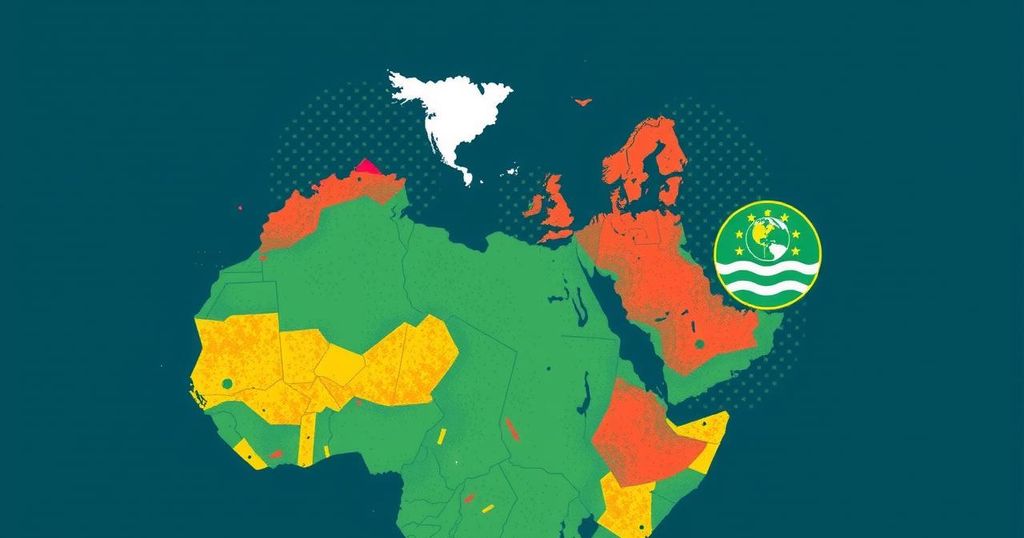The COP29 climate deal, pledging $300 billion annually to developing nations, faced sharp criticism from poorer countries deeming it grossly inadequate. Key representatives articulated the sentiment that the agreement fails to address the urgent challenges they face due to climate change. The discussions highlighted the persistence of economic disparities and the ongoing struggle for just climate finance.
A climate deal was approved by nearly 200 nations, pledging $300 billion annually to developing countries, but this offer was immediately met with criticism from poorer nations describing it as inadequate. During two weeks of intense negotiations at COP29, held in Azerbaijan, leaders of developing nations articulated their disapproval, with India’s representative declaring the deal as an “optical illusion” that fails to address pressing climate challenges. Other nations echoed this sentiment, highlighting a perceived lack of commitment from wealthier countries in light of the ongoing climate crisis.
Developing nations anticipated a more substantial financial commitment to combat climate change, significantly higher than the $100 billion annual pledge previously made. The agreement, which is set to be fulfilled by 2035, reflects the ongoing struggle to bridge gaps between developed and developing nations regarding climate responsibility. UN officials acknowledged the imperfections of the agreement, indicating that it is merely a starting point rather than a comprehensive solution to the climate crisis.
Despite the disappointment among developing nations, US President Joe Biden and other officials framed the deal as a historic step forward, though it falls short of the $390 billion deemed necessary by UN economists. The agreement also proposes that the process for funding climate initiatives include private sources, although the specific commitment for China remains largely unchanged. Lastly, the negotiations highlighted the ongoing tensions surrounding climate finance and the need for a more ambitious global response to environmental challenges.
The ongoing climate crisis has prompted international discussions on funding for developing nations disproportionately affected by climate change, despite contributing the least to global emissions. COP29 served as a platform for these nations to demand equitable financial support to mitigate effects such as rising sea levels and extreme weather events. The negotiations have revealed deep-rooted divisions between developed nations, historically responsible for emission increases, and their developing counterparts who are facing immediate climate threats. This backdrop of economic disparity and urgent environmental need underscores the complexity of achieving a balanced and effective climate finance agreement.
In summary, while the climate pact reached at COP29 signifies a step toward increased financial commitments for developing nations, the meager $300 billion pledge received significant backlash, emphasizing the chasm between the needs of vulnerable countries and the offerings from wealthier nations. Leaders from developing countries expressed their disappointment and skepticism regarding the adequacy of the deal amid escalating climate disasters. The conversation around global climate finance necessitates ongoing dedication and sincerity from developed countries to foster genuine partnerships and address the challenges of climate change comprehensively.
Original Source: www.al-monitor.com






